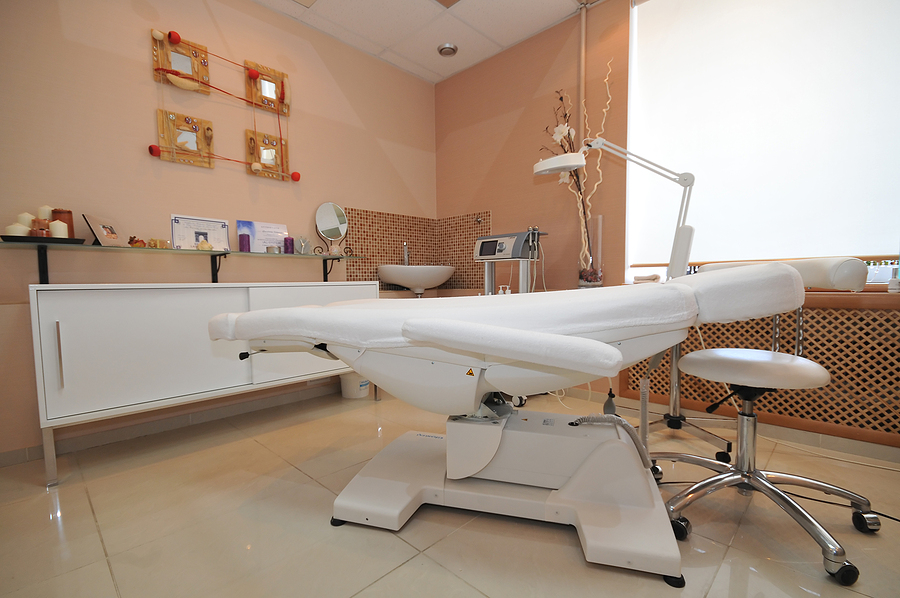Starting a healthcare clinic is more than just about offering the services needed; it’s about the environment in which those services operate. Choosing the space that your clinic will call home is crucial. It not only contributes to your clinic’s branding and patient experience but also plays a significant role in the day-to-day efficiency of your operations.
Whether you’re a medical professional venturing into private practice or an established clinic looking to expand, the process of finding and leasing a retail space warrants a strategic and meticulous approach. This guide is a compass to steer you through the nuances of leasing retail space for your healthcare clinic.

Retail Space in the Healthcare Sector
Before the first patient walks through your door, your clinic’s location and layout should be prescribed for success. The significance of this decision is often underestimated, and missteps can lead to a host of operational challenges that could stymie your healthcare business. From selecting a location that’s accessible and demographically suitable to ensuring the space complies with healthcare regulations, every parameter requires a detailed evaluation.
The healthcare sector isn’t just about providing treatment; it’s an ecosystem of patient trust, community needs, and professional efficacy. Your retail space is the first chapter in your clinic’s narrative, and it must align with these values cohesively.
Choosing a Location
Navigating Demographics
Understanding the community you’ll be serving is pivotal. Analyzing the local population’s size, age, income level, and the healthcare needs that might be underserved will help you tailor your services. Interactive maps and demographic data can guide these decisions, ensuring that the location is a good fit for the type of clinic you envision.
The Competition Conundrum
Competition can be both a boon and a bane. While a location with more established healthcare facilities may suggest a high-traffic area, it could mean facing a battle for market share. Research what’s available, identify the white spaces, and position yourself strategically.
Accessibility and Foot Traffic
Proximity to public transportation, parking facilities, and even the layout of the space from a patient’s perspective matter. Accessibility compliance isn’t just a legal obligation; it’s about making your clinic welcoming and user-friendly to all patients, including those with mobility challenges.
Space Requirements
The Blueprint of Care
The layout of healthcare spaces is distinct. It needs to be efficient, with a clear division of patient areas, staff zones, and spaces for equipment and records. A well-designed space can streamline patient workflows and staff operations, leading to better outcomes and experiences.
Size Matters
Balancing the size of the clinic with your current needs and future ambitions is delicate. Overcrowding due to a space too small can be off-putting to patients, while underutilized, large spaces can be an unnecessary financial burden. Projecting your growth and ensuring the space can accommodate it is foresight that pays dividends.
Zoning and Healthcare Regulations
Healthcare facilities have specific zoning requirements and breaking the law (even unknowingly) can have severe repercussions. Ensure your intended space is zoned for healthcare use or if not, understand the steps required to change its designation.
Lease Terms and Negotiation
Deciphering Lease Agreements
Lease agreements can be cryptic with legal jargon, but understanding the terms is not negotiable. Be clear on your rent, what it includes, and any extras. Know your obligations and rights as a tenant, especially maintenance responsibilities related to the space.
Rent and Renewal Options
Budgeting for your lease should be comprehensive. Don’t just consider the monthly rent but also factor in annual increases, common area maintenance fees, and any utility costs. Negotiate renewal terms upfront to secure the space for the long term if it’s beneficial to your practice.
Lease Duration and Flexibility
While you may be keen on securing a long lease, flexibility is also crucial for unforeseen changes. Short-term leases with clear renewal clauses can provide the security you need without the commitment that could stifle adaptability.
Amenities and Infrastructure
The Necessities
From waiting rooms to examination areas, consultation rooms to restrooms, assess the non-negotiable elements your clinic space must have. This includes electricity, plumbing, and a safe and secure environment compliant with OSHA standards.
Parking and Accessibility
An adequate parking area or easy access to public transport can significantly alleviate patient stress and improve their experience. Remember, some of your patients may have mobility challenges, and thus, accessibility should extend beyond the entryway.
The Technology Ecosystem
Today’s clinics rely on technology for everything from patient management to equipment operation. The space should support a robust IT infrastructure, and it should be designed to accommodate future advancements without major disruptions.
Compliance and Regulations
Zoning Laws and Building Codes
Before you sign on the dotted line, ensure all zoning and building codes are met within the space. This may include specific regulations for healthcare facilities and compliance with the Americans with Disabilities Act (ADA).
Permit Procurement
Leasing a healthcare space may require you to obtain various permits before you can operate. This could range from simple construction permits for renovation work to healthcare specific licenses. Know the process and timeline for securing these documents.
Foreseeability Cost Analysis
Retail Space Lease Cost
Looking at the cost of the lease only scratches the surface. Factor in the costs of any necessary renovations, equipment procurement, utilities, insurance, and any taxes or fees applicable to your occupancy of the space.
Renovations and Aesthetic Integrity
Renovations might be necessary to turn a retail space into a clinic. Consider cost-effective design choices that align with your branding and the need for a sterile, professional environment.
Ongoing Operational Expenses
Leasing isn’t just about rent; you’ll have ongoing utilities, maintenance, and possibly staffing costs associated with running the clinic. Make sure you have a solid understanding of all these expenses.
Marketing and Visibility
Location Marketing
Your clinic’s location should factor into your marketing strategy. Use the uniqueness of the space, its history, and its accessibility in your branding and promotional materials.
Signage and Curb Appeal
Your exterior façade should invite patients inside. Well-lit and professional signage, complemented by clear wayfinding, helps establish your clinic as a trusted healthcare provider before the first consultation.
Leveraging the Inherent Foot Traffic
If your space is in a bustling retail area, consider how you can convert the surrounding foot traffic into patient appointments through events, specials, or even just engaging storefront displays.
Conclusion
Before you sign a lease, conduct thorough due diligence. While the process may seem daunting, it’s a rewarding investment in your clinic’s future. Engage with local professionals, commercial real estate agents, and construction experts who understand the unique needs of healthcare spaces. A successful partnership with these entities can assure that every decision from the location of your clinic to the final design embodies your practice’s values and commitment to patient care.
Most importantly, take the time to tour the prospective space with the lens of a patient and a provider. Your retail space is more than your clinic’s address; it’s the first step in your patient’s health journey and the foundation of your practice’s legacy.
Are you looking for space planning and remodeling guidance for a new retail space or healthcare clinic here in Indiana? Contact BAF Corporation at 317-253-0531 for help with everything from space planning and permitting to healthcare construction, tenant remodeling, and retail franchising in Indianapolis, Indiana. We serve clients all throughout the state.
Related Posts:
Healthcare Facility Construction Considerations for 2022
Benefits of Converting Vacant Mall Space into Medical Facilities
3 OSHA Guidelines For Illnesses and Injury Prevention in Medical Facilities
